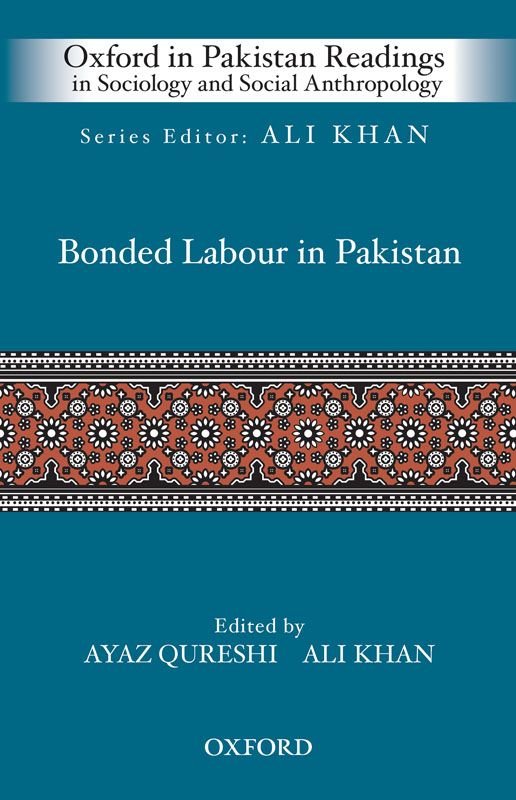-
- E-Books
- Anthropology
- Art & Architecture
- Biographies / Memoirs / Letters
- Business, Economics, and Finance
- Ecology / Environmental Studies
- Education
- Mathematics, Engineering and Technology
- English Language
- English Literature
- Exploration / Travel
- History
- International Affairs
- Islamic Studies
- Language
- Law
- Media Studies
- Medicine
- Music / Performing Arts
- Pakistan Studies
- Philosophy
- Politics
- Psychology
- Sociology
- Strategic Studies
- Urdu Literature
- Women’s Studies
Bonded Labour in Pakistan
Bonded Labour in Pakistan is the first academic study of its kind, addressing common misconceptions of what bonded labour actually is, and, crucially, offering an agenda for future research and action on the issue. Comprising of a collection of essays, it provides political, legal, and gendered dimensions to the discussion of bonded labour across different agricultural and industrial sectors in the country. Fresh ethnographic studies have been included that offer a harrowing view of individuals and families trapped in a vicious cycle of bondage along with some seminal published essays on the topic. The book takes an incisive look at the exploitative practices prevalent in the mining, brick making, fishing, agriculture, begging, and domestic workers’ industries. It compares the practice of peshgi (advance payments) in industries which are comparatively less abusive, such as the football-stitching and bangle-making industries in Sialkot and Hyderabad, and analyses the differences that allow these two industries to escape the label of ‘modern-day slavery’. It dissects the elements that turn common practices of recruitment, wages, and ‘benefits’ into tools of manipulation and control. Besides the social constructs of feudalism and poverty that help perpetuate the practice of bonded labour, this collection includes an essay from a legal scholar that deconstructs the weaknesses in the existing laws regarding bondage and the system whereby that law is meant to be implemented. It also looks explicitly at the fate of women, particularly in the brick making and agriculture sectors, and the violence that seems to accompany women under bondage.
Author Description
Ayaz Qureshi is Assistant Professor of Anthropology at the Department of Humanities and Social Sciences at LUMS. His research interests span a range of issues from governance, politics, and bureaucracies to economics, health, workplace and labour relations, and bonded labour. Prior to joining LUMS, Dr Qureshi taught anthropology at the Department for Continuing Education at the University of Oxford, the University of Sussex in the UK, and Arid Agriculture University, Rawalpindi. He has a PhD in anthropology from the School of Oriental and African Studies in the UK, which he attended as a Commonwealth Doctoral Scholar.
Ali Khan is Associate Professor of Anthropology and Department Chair at the Department of Humanities and Social Sciences at LUMS. His research interests vary from labour issues, particularly child and bonded labour, to popular culture in Pakistan focusing particularly on cinema and sports. He has worked in Washington and Islamabad for the World Bank's South Asia Region and with the International Labour Organization primarily on projects related to child and bonded labour. Ali Khan’s book Representing Children: Power, Policy and the Discourse on Child Labour in the Football Manufacturing Industry of Pakistan was published in 2007 by Oxford University Press. He is also the general editor for a series of books on sociology and anthropology in Pakistan of which five volumes have been published. Ali’s latest co-authored book Cricket Cauldron (I. B. Tauris 2013) is a sociological analysis of culture and society as seen through the prism of cricket in Pakistan. Ali Khan has an MPhil and a PhD in social anthropology from the University of Cambridge in England.
| ISBN | 9780199403899 |
|---|---|
| Weight in kg | 0.445 |
| Rights | World |
| Year of Publication | 2016 |
| Binding | Hardback |
| Pages | 232 pages |















